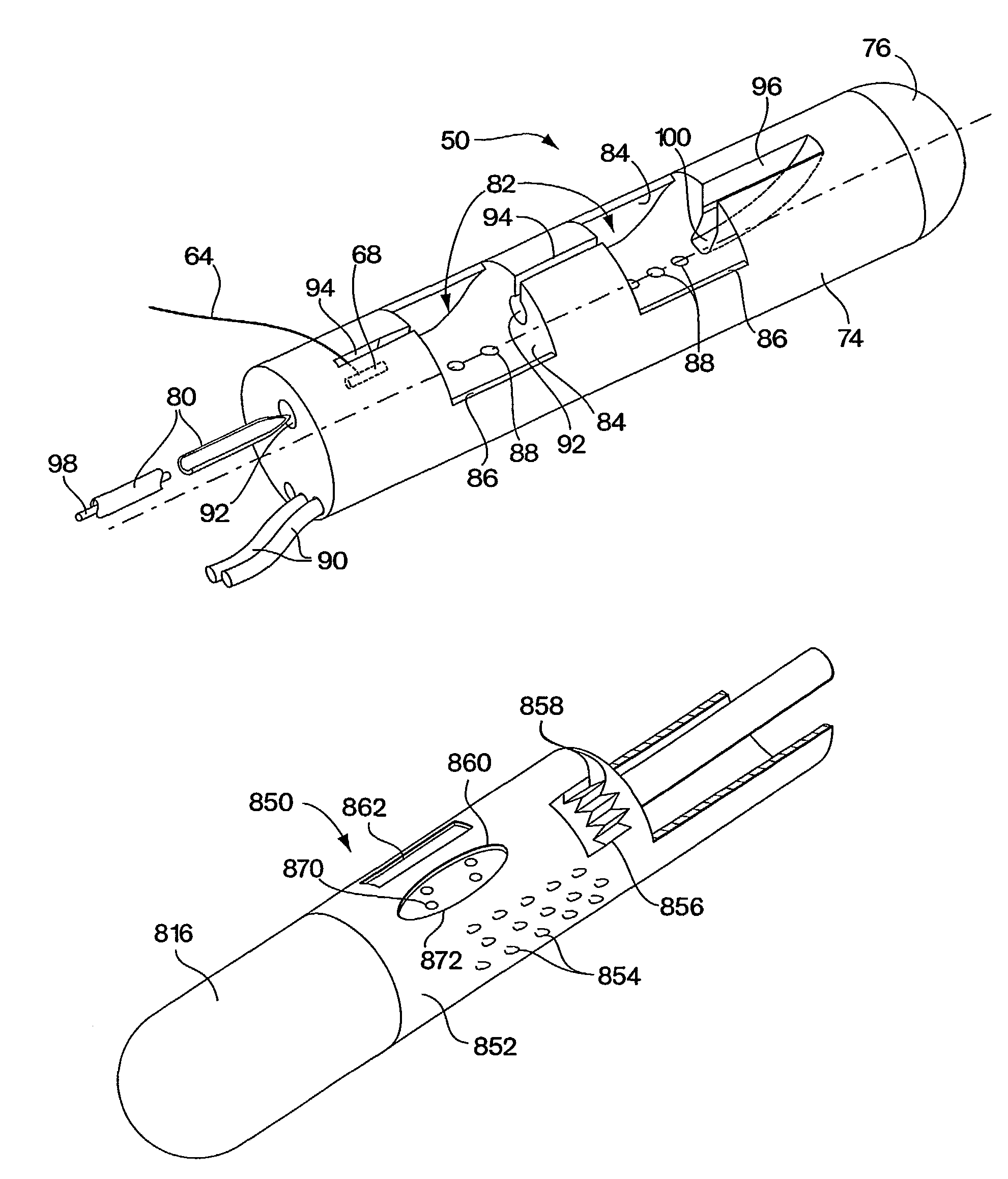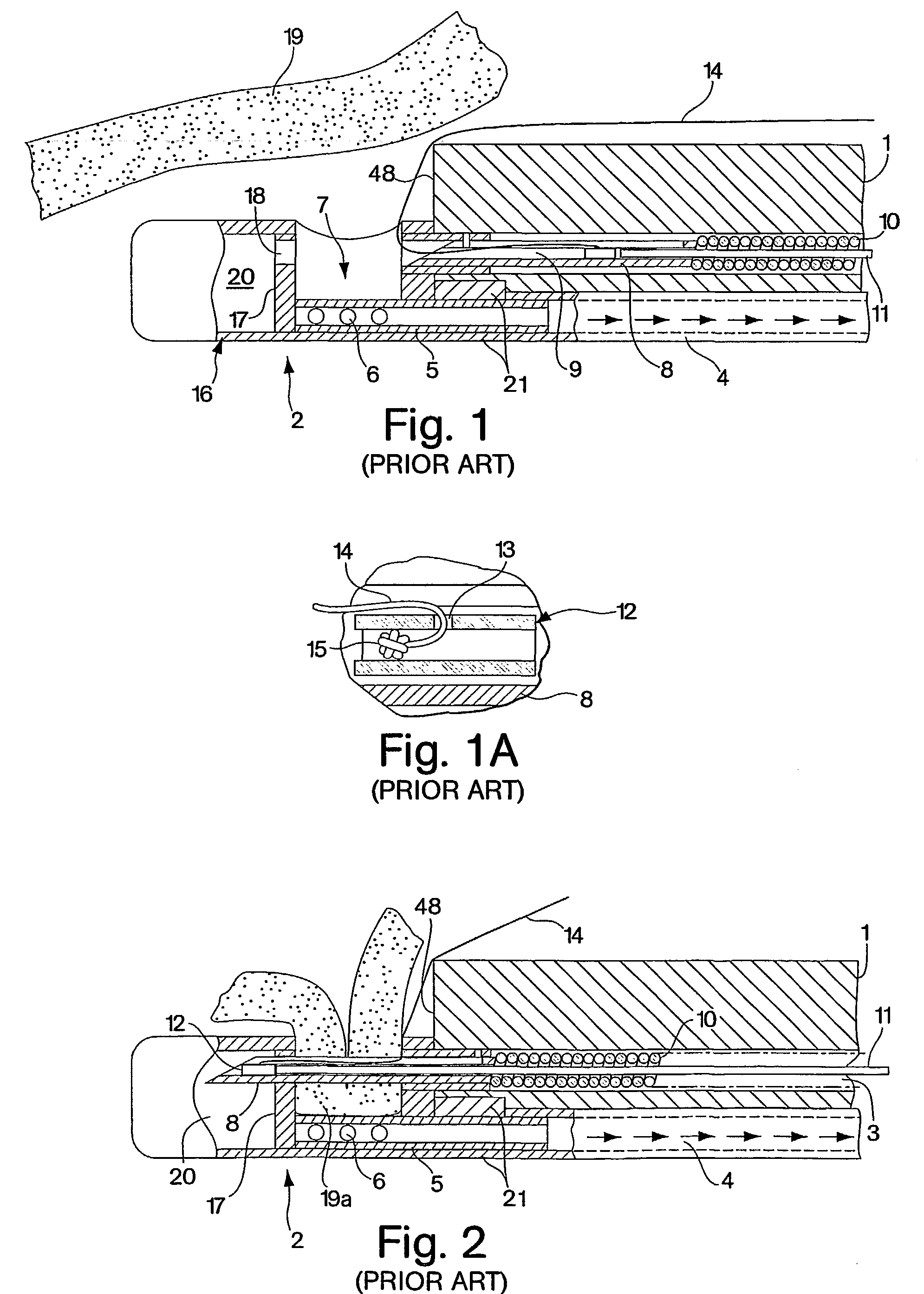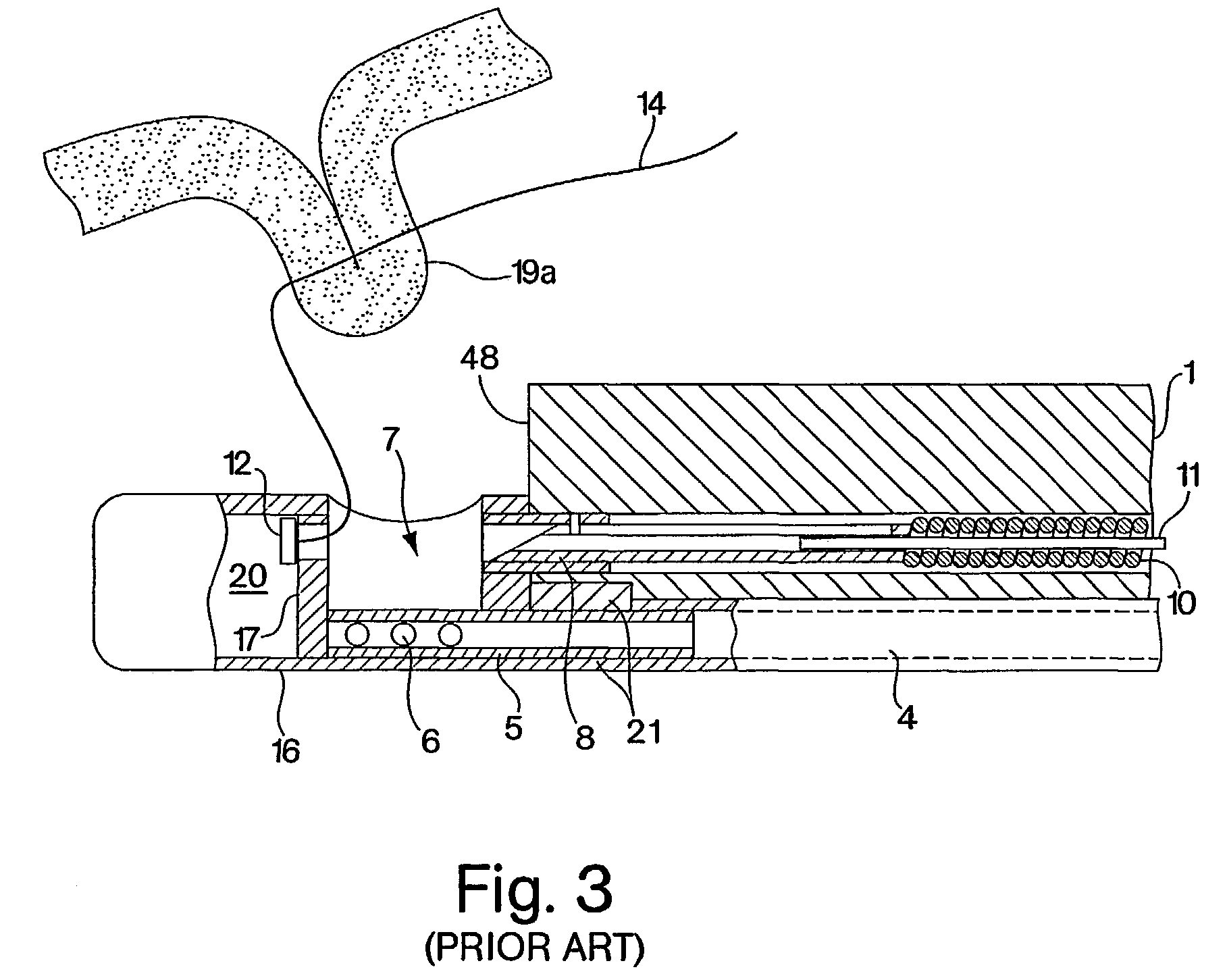Endoscopic tissue apposition device with multiple suction ports
a tissue apposition and suction port technology, applied in the field of endoscopic tissue apposition devices, can solve the problems of inability to properly function the valve at the junction between the stomach and the esophagus, long and cumbersome use of devices, and difficult surgical knots to tie successfully, etc., to facilitate the use of abrasion means, promote tissue ingrowth, and correct positioning of abrasions
- Summary
- Abstract
- Description
- Claims
- Application Information
AI Technical Summary
Benefits of technology
Problems solved by technology
Method used
Image
Examples
embodiment 200
[0121]With the side-by-side capsule embodiment 200, there are several possible mechanisms for tissue securement may be employed. Tissue securement may comprise suture material passed through the tissue portions. Alternatively, the tissue securement mechanism may comprise a clip that is driven into the tissue to secure the portions and remains in the patient, such as a helical wire coil described below. Several tissue securement advancement mechanisms are also possible. Specifically, several needle configurations and suture tag securement embodiments are possible with the multiple suction port capsule 200.
[0122]In one embodiment of the side-by-side device, shown in FIGS. 15-18, a forked needle 212 slidably mounted in the capsule 200 is employed to penetrate simultaneously the tissue portions captured in suction ports 202 for suture delivery. As best shown in the sectional isometric view of the capsule 200, shown in FIG. 18, the forked needle 212 may comprise a forked stainless steel ...
embodiment 400
[0134]FIG. 22 shows an alternate embodiment of a tissue apposition device having multiple suction ports that are longitudinally and angularly offset from each other. The offset capsule embodiment 400 may have a cylindrical shape having at least two suction ports 402 formed through the surface of the capsule that are spaced longitudinally on the capsule and angularly offset from each other. The exact placement of the ports on the suction chamber may be varied to obtain the preferred tissue plication shape for the given procedure. In the example of the offset capsule shown in FIG. 22, the suction ports 402 are arranged to be slightly spaced longitudinally of a distance of less than half the length of a suction port and are angularly displaced at less than 90°. This arrangement of suction ports offers a physician an alternative configuration of formed tissue plications that may better achieve the objective of the particular treatment. The arrangement of suction ports 402 is believed to...
embodiment 500
[0137]FIG. 24 shows another alternate embodiment of the multiple suction port tissue apposition device having four suction ports. The quad port apposition device 500 is similar to the side-by-side apposition device 300 described above, but comprises an additional set of two suction ports and two needles on the opposite side of the capsule. Additionally, the quad port embodiment 500 may have a cylindrical shape having a circular cross-section with suction ports 502 spaced around the circumference of the capsule. Preferably, each suction port 502 opens to an independent vacuum chamber 504 serviced by an independently operable needle 506. Preferably, the quad port capsule is used in conjunction with an endoscope 1 having multiple working channels 3 to accommodate the movement of the multiple needles 506. For example, an endoscope having two working channels 3 could accommodate two pusher cables 10 slidable within each working channel 3. Each pusher cable could then be joined to a separ...
PUM
 Login to View More
Login to View More Abstract
Description
Claims
Application Information
 Login to View More
Login to View More - R&D
- Intellectual Property
- Life Sciences
- Materials
- Tech Scout
- Unparalleled Data Quality
- Higher Quality Content
- 60% Fewer Hallucinations
Browse by: Latest US Patents, China's latest patents, Technical Efficacy Thesaurus, Application Domain, Technology Topic, Popular Technical Reports.
© 2025 PatSnap. All rights reserved.Legal|Privacy policy|Modern Slavery Act Transparency Statement|Sitemap|About US| Contact US: help@patsnap.com



